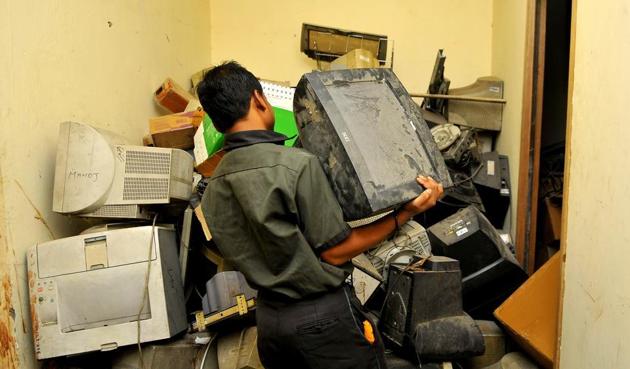Apex pollution regulator issues notices to Nokia, Intel, Cisco
The notices were served because manufacturers did not apply for Extended Producer Responsibility Authorisations, required by India’s new electronic waste management rules.
India’s apex pollution regulator, the Central Pollution Control Board, issued notices to 225 electrical and electronics manufacturers for failing to meet provisions under the new e- waste management rules. Companies served notices included major electronics manufacturers like Nokia, Cisco, Intel and Panasonic.

The environment ministry is considering amending the rules notified in 2016, under pressure from the industry especially mobile manufacturers.
The e-waste management rules 2016 superseded the e-waste management rules of 2011, and one of the key features was the introduction of extended producer responsibility (EPR). The new rules require electronic manufacturers be responsible for the e-waste they produce.
For producers to meet their e-waste recovery targets they have to obtain authorisation from the CPCB. The notices were issued for failing to even apply for the Extended Producer Responsibility- Authorization. Only 143 have received authorisation so far.
Bhupesh Raseen, member of the Communication Mobile Association of India, termed the new rules as “impractical,” given the current state of India’s waste management which relies heavily on the informal sector.
The rules lay down progressive targets for waste collection and responsible disposal for manufacturers. In the first two years after their enforcement producers are mandated to retrieve and safely dispose 30% of their estimated waste generation, with the target increasing to 40% in the 3rd and 4th year and 70% from the seventh year onwards.
“All over the world it is the producers that are responsible for safe disposal under EPR, it is not something we have invented,” Manoj Kumar Gangeya, director at the Hazardous Substances Management Division of the ministry said, “the industry is in the best position to do this.”
He added that the ministry had not reached a decision about revisions to the rules but that they will take the concerns of all stakeholders into consideration.
The e-waste recovery target is likely to be reduced from 30% to 15%, according to ministry sources. The deadline for meeting the first year target is October 1, 2017, which is likely to be relaxed as well.




